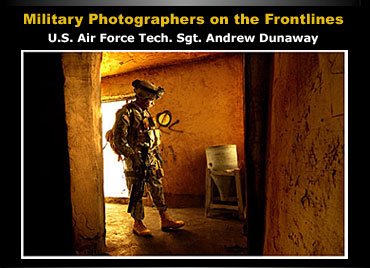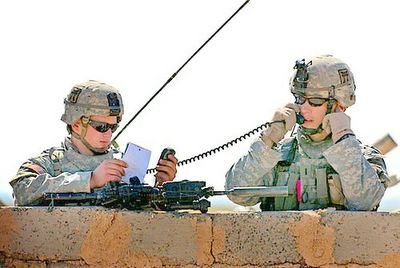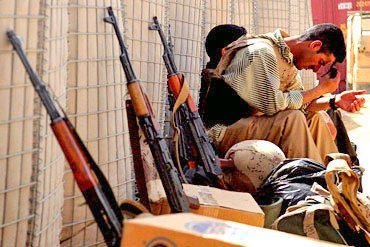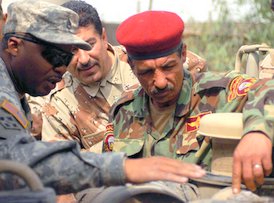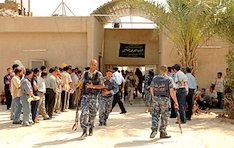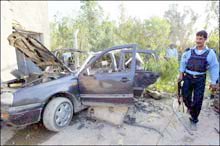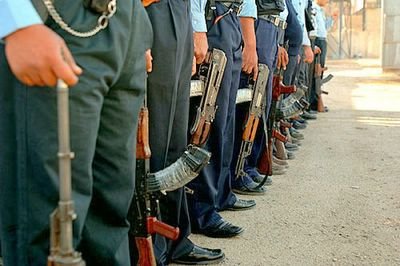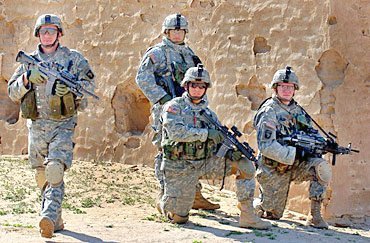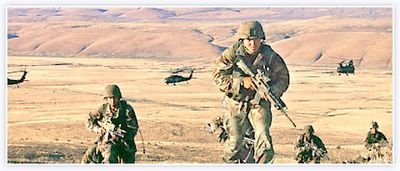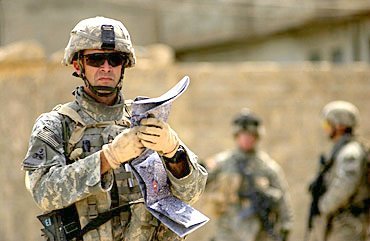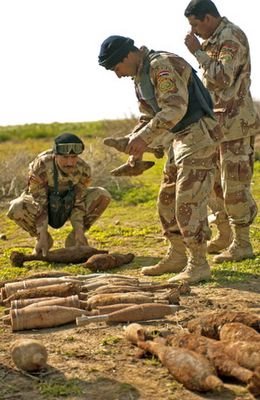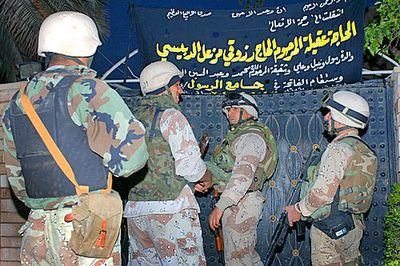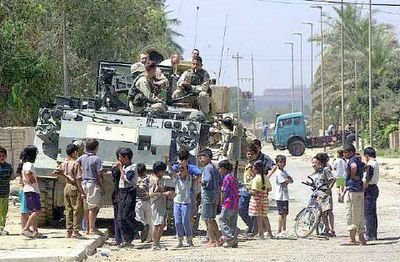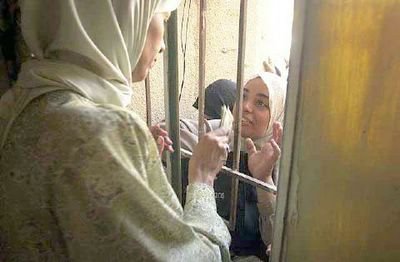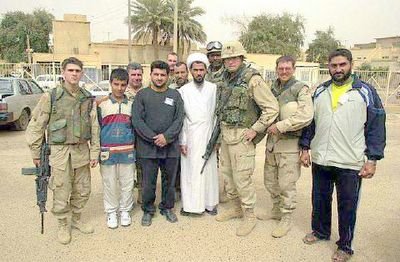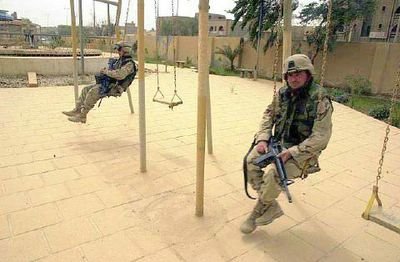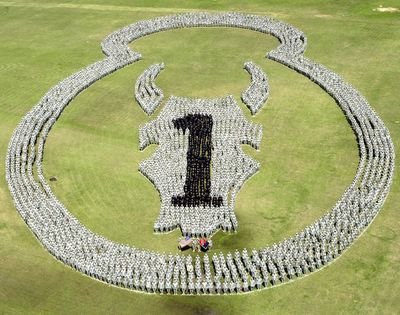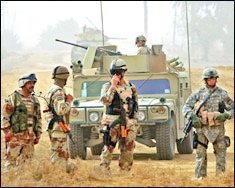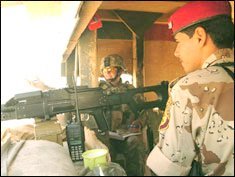Iraqi tip leads to weapons caches
BAGHDAD, Iraq (April 20, 2006) – Local citizens are helping the Coalition, as improvements in infrastructure lead to a better quality of life. Multi-National Division –Baghdad Soldiers found a weapons cache south of Baghdad April 17, thanks to a tip from an Iraqi citizen.
Soldiers from the 4th Infantry Division responded to the tip with a patrol which discovered eight 250- to 500-pound aerial bombs stored in a steel cage, apparently ready for transport. The Soldiers called in an explosive ordnance disposal team, which destroyed the cache with a controlled detonation.
Earlier in the day, Soldiers from Multi-National Division - Baghdad’s 2nd Battalion, 502nd Infantry Regiment, discovered another cache while conducting a combat patrol southwest of Baghdad. The cache consisted of rocket-propelled grenade launchers and grenades, a mortar tube and round, flares and an Iraqi police vest.
The cache was turned over to an EOD team and rendered safe.
A terrorist bomb caused extensive damage to a new police station under construction in Yusifiyah, south west of Baghdad April 19.
The explosion occurred about 10 p.m. collapsing half of the building. Soldiers from 6th Iraqi Army Division secured the site after the blast to prevent further damage.
“Terrorists are attempting to prevent the rebuilding of the essential infrastructure,” said Lt. Col. Jonathan Withington, Multi-National Division - Baghdad spokesman. “The police station is a sign of progress for the Iraqi people.”
Iraqi authorities are investigating the incident.
Rebuilding Iraq continues
Despite the efforts of terrorists and insurgents, measurable progress is taking place in Iraq. Residents of Airport Village near Baghdad’s International Airport now have safe drinking water, thanks in part to Coalition Forces from Victory Base.
A “turn on the valve” ceremony marked the completion of the Airport Village Water Tower and Pipeline project April 15. Iraqi contractors finished the tower and pipeline with the help of workers from the village.
Coalition Forces coordinated the funding for the water project at the request of the village leadership, said 1st Lt. Emily Siegert, a civil and military affairs officer with Multi-National Division – Baghdad.
“The mayor had approached the (Soldiers). They had negative water pressure, which allowed sewage to get into the drinking water,” said Siegert.
“This is the biggest gift from the (Coalition) Forces to this village,” said Esam Al Askar, managing director and CEO, Al Fulq Ltd. Co. Al Askar is also a resident of the village. “People used to be very, very sick in the village. When the water pipes were rotten, sewage was leaking (into the water supply).”
Workers replaced the old Airport Village water network with an 8-inch pipeline that improved the water pressure and accessibility for the village. The new water tower expands the ability of the village to have water during the driest summer months.
The work employed dozens of the village’s men. “It was a good opportunity for the unemployed in our village,” said Al Askar.
“The villagers are very pleased with the project. They appreciate having fresh water,” added the village’s mayor, who requested his name be withheld.
“The project started in July 2005 by the 2nd Battalion, 299th Infantry, Hawaii Army National Guard,” said Maj. John Gentry, Victory Base Defense Operations Center Effects Coordinator and member of the 122nd Rear Operations Center, Georgia Army National Guard.
The work was continued by MND-B Soldiers of the 320th Field Artillery Regiment, and completed by the 17th Field Artillery Brigade, based out of Fort Sill, Oklahoma.
Airport Village dates to the 1970s when Baghdad International Airport was built. The village was originally intended to house only a few-hundred people, but is currently home to about 2,500 residents, many of whom work at Baghdad International Airport.
The project was funded by the Overseas Humanitarian Disaster and Civic Aid program.
(Compiled from official Defense Department sources)
Archived Daily Stories
